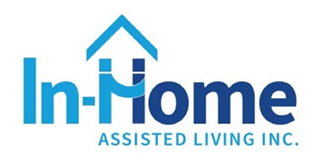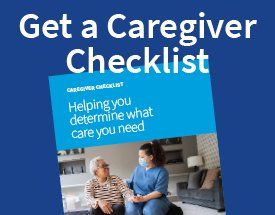
FAQs
Will Auto Insurance cover home care after an auto injury?
All Ontario Auto Insurance policies have some legislated minimum features. Always consult with your lawyer following an automobile accident to ensure that you receive the benefits that you are entitled to. You may be eligible for benefits even if you are not the vehicle owner or policy holder.
In-Home Assisted Living is experienced with auto injury claims and (SABS) Statutory Accident Benefits Schedule. We are a registered service provider with (HCAI) Health Claims for Auto Insurance. Ontario auto insurance policies may cover homemaker services, attendant care, appointment transportation, therapies, or equipment while you are recovering from injury. We will coordinate all services with your insurance company and lawyer while also satisfying their documentation and reporting requirements. Our goal is to help you maximize your benefits under your policy or claim.
We know that you are not just a claim number. We always take a highly individualized approach to your care, characterized by professional excellence, empathy, and respect.
Read More about Auto Insurance Coverage
Will my home care services from In-Home Assisted Living be covered by the government.
The Ontario Government offers some home care assistance for medically qualified individuals through the (LHIN), Local Health Integration Network. The program is called “Community Care at Home” and is designed to aid with tasks called (ADL’s), Acts of Daily Living, such as bathing, dressing, and feeding. They may also provide some nurse visitations for more complex medical situations.
Our Care Managers can help you access government services from LHIN and other appropriate agencies so that you maximize your eligible resources. In most cases, you’ll receive your eligible amount of care from the government, and we will supplement the services with a more thorough or comprehensive individualized care plan that could also include safety supervision, ADLs, lifts and transfers, meal preparation, housekeeping, laundry, linens, companionship, medication management, and more.
My parents live in the GTA and I live out of town, province or country. How do I arrange help?
No worries! Just give us a call. We will begin with a detailed conversation about your parent’s needs, including their physical and cognitive health, their lifestyle and preferences and your concerns. We can also arrange video or telephone conference calls to engage your parents, other family members and individuals with Powers of Attorney. Our Care Mangers can visit your parents’ home to meet them and assess their needs.
We will help arrange a care plan and communication plan to keep you fully engaged in the planning and delivery of services. Our goal is to help design and deliver the right amount of care, at the right times, with the right people, performing the right tasks. Our care plan will complement the care provided by family caregivers, whether that’s once per week or every day.
Are caregivers and nurses from In-Home Assisted Living insured and bonded?
Yes, we take every precaution in hiring caregivers including professional interviews, police background checks and reference checks, plus every caregiver is covered under our general liability insurance, theft and dishonesty insurance, special medical liability insurance, auto insurance and worker's compensation insurance.
Will my private health insurance cover services from In-Home Assisted Living?
Every insurance plan has unique features and benefits. Many employer-provided or private Extended Health Benefit Plans include coverage for private nursing, homemaker or personal support services. Ask your benefits administrator or insurance company about your entitlements. All automobile accident policies will include some form of “Attendant Care” coverage.
In most Health Benefit Plans you will require pre-approval from your insurer. They may request a doctor’s note explaining the necessity. Typically, you will submit your receipts for a reimbursement from your insurer, just like you do with prescriptions. In some cases, we can be authorized to deal directly with the insurance company. We ensure that all documents and invoices meet your insurance company’s requirements to minimize red tape and time.
What is the difference between “Live-in” Home Care and Hourly Care?
Live-in care is a great solution for children’s nannies or seniors who require regular moderate assistance with homemaking, mobility assistance, safety monitoring and companionship. Live-in caregivers must be provided their own sleeping quarters and washroom and typically eat their meals from the household groceries.
Live-in caregivers are usually not the most appropriate solution for people with serious medical issues who require constant or regular care over a 24 hour period and throughout the night. In the current recruitment market, qualified live-in caregivers are very, very difficult to find.
Hourly caregivers attend on a regular schedule (day or night) and have a schedule of duties to perform. Hourly caregivers will perform a variety of duties according to a care plan that could include delegated tasks regarding medications, assistance with personal hygiene, household chores or homemaking, meal preparation and even assistance with transportation. Our goal is to consistently schedule the same caregivers, so they have the opportunity of building relationships of familiarity, trust, and confidence. This is especially important for seniors who are experiencing some cognitive decline due to aging, dementia, or Alzheimer’s.
Our Case Managers can help you decide what type of assistance is most appropriate for your needs. This assessment is always free of charge. Check out our Caregiver Checklist
Can services be delivered in a hospital, rehab centre or assisted living residence?
Yes, we provide private client care at any location including hospitals, long-term care facilities, assisted living residences and within retirement communities. We have strong relationships with Ontario hospitals and retirement homes. They typically appreciate the fact that you have arranged professional one-on-one care for services that reach beyond the scope of their resources.
We comply with and support all facility policies including covid protocol, PPE requirements, Vaccination policies and rapid testing.
What are the qualifications and types of caregivers available for our home?
Our caregivers are certified Personal Support Workers (PSWs), Registered Nurses (RNs), Registered Practical Nurses (RPNs), Physiotherapists (PTs), Occupational Therapists (OTs) and Social Workers.
Depending upon your needs, our professional Care Managers will always ensure your caregivers possess the appropriate qualifications and certifications with the skills and experience necessary. From preparing meals to providing personal care or complex medical care, we take the time to match the right people with your family’s loved-one.
We also take the extra time to match personalities that fit. Our goal is to provide a care team that you like and trust and to try to keep the same care team in place throughout the duration of your requirement.
Can In-home Assisted Living help with Palliative care at home?
Our experienced and compassionate Care Managers are experts at helping families through this difficult transition. We work closely with the family, palliative doctors, family physicians and LHIN to help coordinate the types of care and caregivers necessary. Our goal is to help both patient and family feel comfortable and confident in your familiar environment. We can help arrange beds, equipment, care, transportation, caregivers and in home nursing up to 24 hours per day if necessary.
Can we expect the same caregiver to return for all our care?
We believe that one of the most important factors influencing client satisfaction is the rapport and familiarity that develops between caregivers and clients. That’s why we prioritize a great match involving, personalities, languages, schedules, and skills. This is especially important when supporting seniors who are experiencing confusion, memory loss and anxiety from Alzheimer’s and dementia. Of course, some clients require care 7-days per week or long hours making it necessary to have more than one care provider but even then, we do our very best to minimize the number of visitors and maximize the benefit that comes from strong caring and familiar relationships.
Protecting our clients and caregivers from the spread of virus is also a priority. We make every effort through careful planning to minimize the number of homes that each caregiver visits.
What domestic tasks will a caregiver perform?
Every family has different needs, schedules, and priorities. Your care plan will be designed to suit your needs and desires. Your customized care plan can include personal care, dressing and bathing; meal preparation, feeding assistance; and groceries; plus, house cleaning, dishes, bed linens and laundry. But don’t stop there. Your care plan can also include assistance with exercises, mobility safety, medication management, escort to appointments and companionship. Download our caregiver checklist to see a more comprehensive list of the types of tasks and activities that could be included in your personalized care plan.


